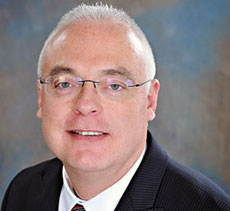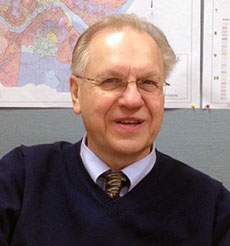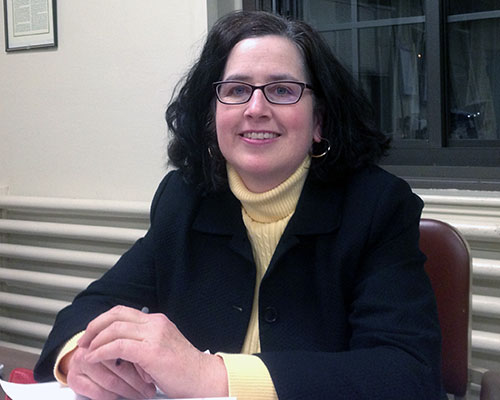Councilor Melinda E. Barrett wants residents to have the option of dropping off trash directly at Covanta’s Ward Hill plant.
Haverhill city councilors Tuesday night generally praised Mayor James J. Fiorentini for negotiating a new agreement that lowers the city’s trash disposal costs and raises income from the city’s waste-to-energy plant. However, councilors used the opportunity to push for additional benefits such as asking Covanta to host a resident bulky waste drop off area and further restrict trash truck traffic.
Fiorentini told councilors the city already paid one of the lowest fees in the state to dispose of trash—$59 per ton—but the new agreement reduces the amount further to $55. The new host agreement also requires Covanta to pay the city $375,000 more each year. The company already pays about $2 million annually in lieu of taxes. The mayor reminded members he, as lawyer for the Haverhill Environmental League, opposed the siting of the plant on the banks of the Merrimack River more than 20 years ago.
“I still feel this way,” the mayor said. However, he said, the 1,650-ton-per-day plant is here to stay. In exchange for additional benefits, Covanta will be allowed to deduct recyclables from the maximum amount of refuse the company may accept—about 15,000 tons more per year. Fiorentini said Covanta generates enough electricity to power every household in the city, but so far isn’t interested in selling directly.

Council President John A. Michitson.
“You obviously did a good job negotiating this contract,” council President John A. Michitson told Fiorentini.
Councilor Melinda E. Barrett called for Covanta to accept bulky waste items directly from residents at its Ward Hill location. She explained location of such a transfer station might make it easier since households will soon begin using 64-gallon toters for residential trash disposal. Haverhill Department of Public Works Director Michael K. Stankovich said he believed Covanta was “amenable” to the idea, but the state Department of Environmental Protection regulates this aspect of the operation.
Since the city has the right to dictate the routes garbage trucks take to the plant, Barrett said, it could try calling on North Andover, which hosts its own incinerator, to restrict traffic as well. Several councilors noted truck traffic to Wheelabrator’s North Andover is disruptive to Salem Street residents, for example.

City Councilor William J. Macek.
Councilor William J. Macek said he has concerns about Covanta’s operating hours, which begin at 2 a.m. He asked if the hours could be further restricted in line with commercial machinery at other companies. Other than the combustion plant, landfill hours are restricted to between 6 a.m. and 6 p.m., weekdays, and 10 a.m. to 6 p.m., weekends.
Of all the waste burned at Covanta, Councilor Colin F. LePage said, 82 percent of loads contain recyclable material. Of that amount, he added, 94 percent is corrugated cardboard. He said he obtained the figures as a member of the city Recycling Task Force.


Haverhill being the host city to trash mountain should have never had to pay to burn its trash…..ever!
I see not mention of the reduced “monitoring”. Was that discussed by this council or did they roll over and push it aside for more money ?